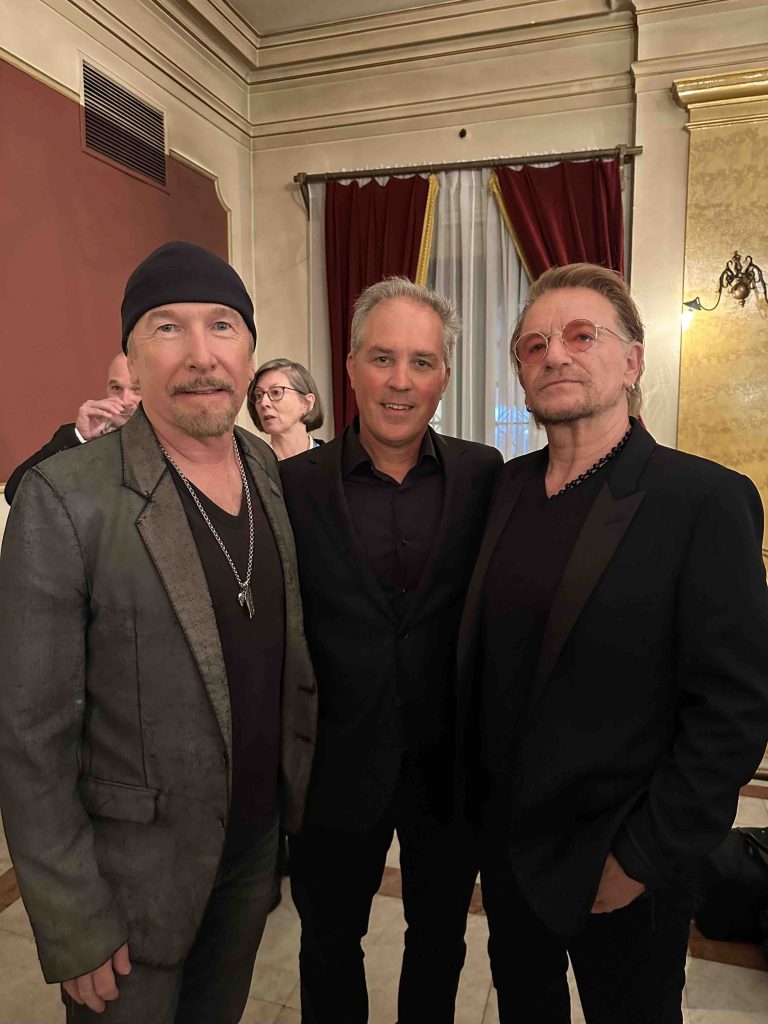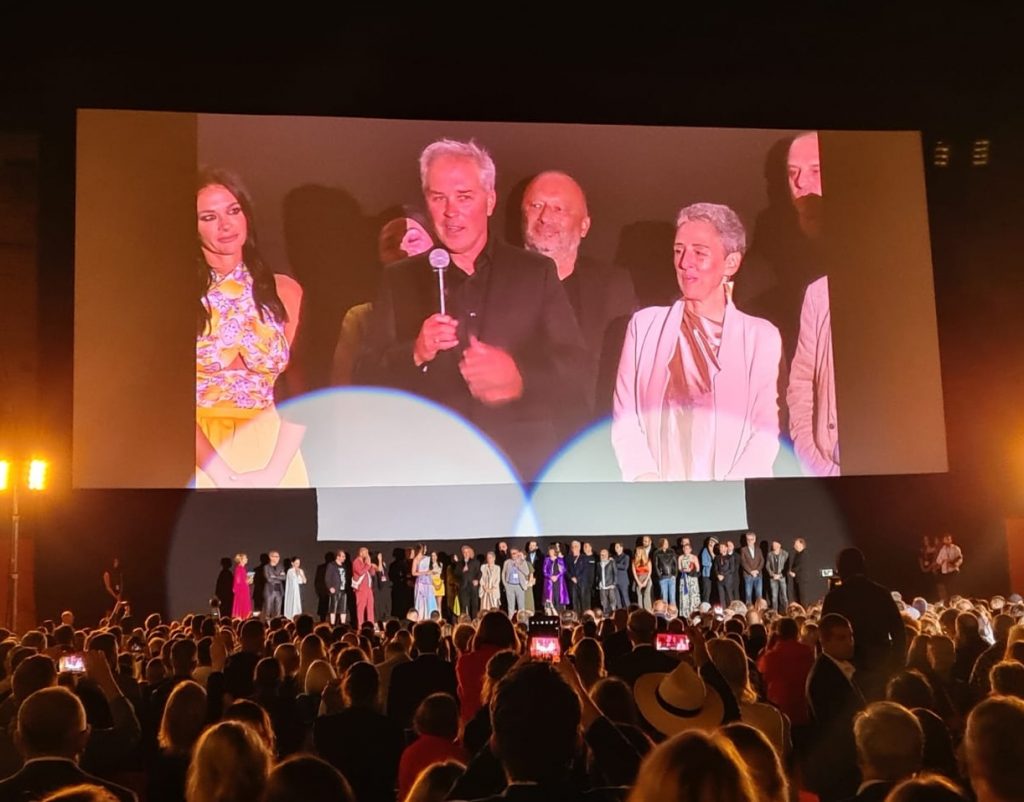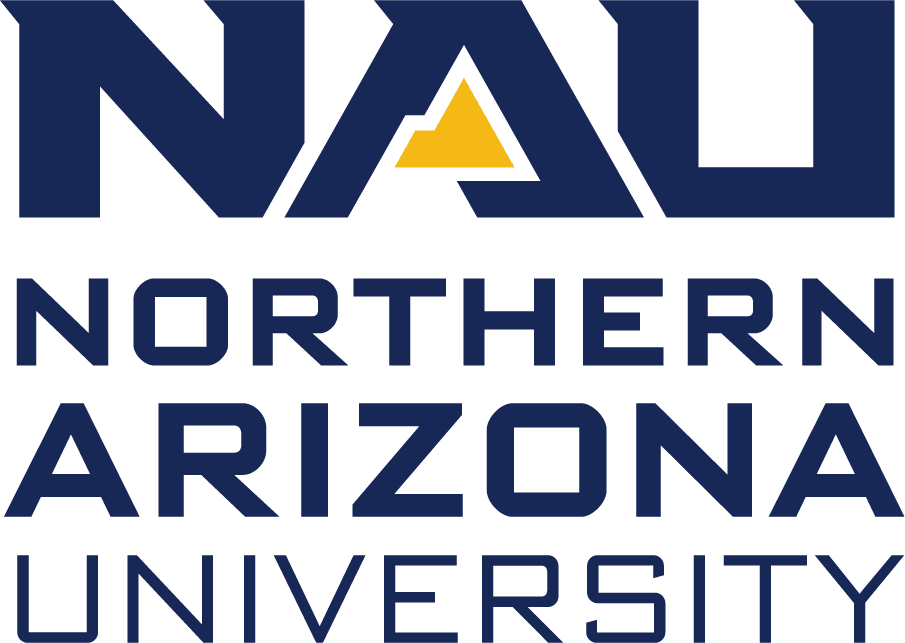Like all young people, Northern Arizona University students sometimes feel uncertain about the future. One of their professors can relate.
Nearly 30 years ago, after experiencing a painful loss, Bill Carter made the spontaneous decision to leave his life in the United States, travel to the Balkans and commit to doing whatever he could to help local people embroiled in the Yugoslav Wars. He had $200 in his pocket, next to no humanitarian work experience and no clue where his life was headed.
“I didn’t know what I was doing; I was a wounded creature,” Carter said. “When you lose someone you love, you don’t know where to put your feelings. You can go down some bad roads: substance abuse, isolation. I wanted to use this pent-up energy I had to at least help people.”
Carter, now a professor of practice at NAU’s School of Communication, said that youthful decision continues to open doors to life-changing opportunities, even 30 years later. To wit: He recently worked with producers Matt Damon, Ben Affleck and Sarah Anthony and the band U2 on the documentary film “Kiss the Future,” which tells the story of the bloody Siege of Sarajevo and U2’s efforts to raise awareness of the conflict. The new film, directed by Nenad Cicin-Sain, was written by Carter and is based on his 2004 book “Fools Rush In.”
(Editor’s note: The trailer below contains some profanity.)
“Kiss the Future” hasn’t yet been widely released, but the NAU and Flagstaff communities can attend a special pre-screening and discussion of the film at 7 p.m. Tuesday, Jan. 23, in the Cline Library assembly hall on NAU’s Flagstaff campus. The event, part of the College of Arts and Letters Film Series, is free and open to the public.
Carter may rub shoulders with A-listers today, but his beginnings in Sarajevo—now the capital of Bosnia and Herzegovina—were humble: As a member of The Serious Road Trip, a humanitarian organization that brought aid and entertainment-based therapy to people in need, he drove trucks and delivered food and supplies dressed as a clown.
Then, he got a truly insane idea: Why not get a hold of U2, the biggest band in the world, and see if they wanted to help?
“Bono responded,” Carter said. “He listened to what I had to say about what was happening in Sarajevo: the hunger, the daily shelling and sniper attacks, the underground music and art scene where people went to protect their sanity. U2 agreed to put Bosnians on air, live, and do satellite feeds into their shows as they toured Europe. This would have been difficult under any circumstances, but from a besieged city with no electricity, no food, no water supplies and no gas, this was a huge undertaking. It speaks volumes to who they are as a band, and as humans.”

The footage, broadcast to thousands of fans packed into massive arenas, featured interviews with Sarajevo residents who described their daily lives in the midst of war. U2 fans spread the word, and their activism led to increased international news coverage. When the Bosnian War came to an end in 1995 after a series of massacres that shocked the world, U2 made good on a promise to play in Sarajevo. At that now-legendary concert, parts of which are featured in the new film, Bono urged the crowd to put the past behind them and “kiss the future.”
Carter said his experience working with Bosnians on the satellite broadcasts showed him the incredible power of people who pool their skills and talents to fight for a cause.
“It’s one of the messages in ‘Kiss the Future’: Each of us has something to contribute,” Carter said. “Maybe you’re the best cook in your apartment block and you can make everyone breakfast with very limited supplies. Maybe you’re a puppeteer who can distract the children from the sounds of shooting next door. One Bosnian named Gino, who is in the film, put on a performance of ‘Hair’ every day for 1,000 days. The film is really about people who keep each other going in all these different ways, through art, culture, poetry readings and music being played in underground clubs.”
Whether you’re hauling sacks of potatoes or documenting the crisis through film, Carter said, you’re making a positive impact—and that’s what he emphasizes to his NAU students each semester as they embark on storytelling projects about pressing social issues both global and close to home.
“I think a lot of students believe they are too young and inexperienced to make a difference,” Carter said. “I had just turned 27 when I arrived in Sarajevo. What my experience can teach them is that you can do something, even if you have no money and no expertise. Don’t undersell the power of your original ideas.”
Jill Kimball | NAU Communications
(928) 523-2282 | jill.kimball@nau.edu




